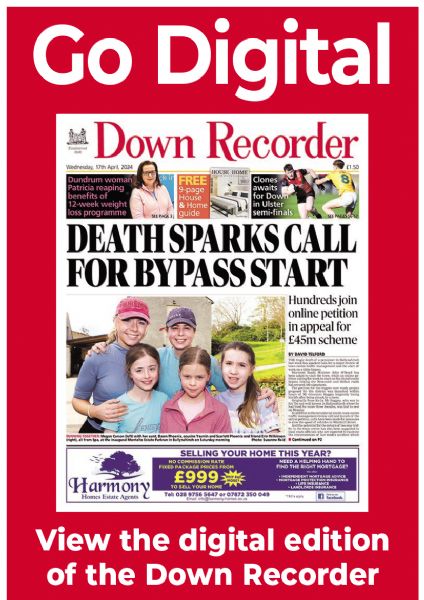Brexit red tape issue concerns for railway
Brexit red tape issue concerns for railway
24 February 2021
A LOCAL heritage railway has discovered that the movement of goods between Britain and Northern Ireland is not going full steam ahead post Brexit.
The Downpatrick and County Down Railway (DCDR) had to wait a month for a delivery of a vintage railway speed limit signs from England.
The signs — a gift from the Dartmouth Steam Railway and River Boat Company — finally arrived only after DCDR chairman Robert Gardiner approached six different firms to arrange for them to be brought across the water.
Mr Gardiner believes red tape caused by the Northern Ireland Protocol might have been to blame for the delay.
Now he fears the Protocol may affect his ability to get essential items and spare parts for the railway.
“One thing overlooked in this whole NI Protocol debate is that organisations in the Third Sector, in which heritage railways operate, have different types of relationships than normal commercial sector,” he said.
“It is very fraternity based, with organisations and individuals more prepared to do thing for the common good and the furtherance of our sector. It relies very much on goodwill and good faith between organisations and individuals.
“This was my first real personal experience of the new internal UK border beyond what you hear in the news and the headlines. I did not believe the hyperbole beforehand, until I tried to bring something across.”
Mr Gardiner said it would have been a routine delivery before the UK officially left the European Union.
“I think I approached five or six firms, two in NI, the rest in GB. Only two replied, and one to decline the job,” he said.
“One stated that to send the pallet to Northern Ireland I would need to provide a completed commercial invoice — it looks like a customs form — and on top of that as well that the receiver in NI must be EORI registered and have an XI EORI number, a strict requirement as all consignments to NI have to be entered on the Trader
Support Service which requires such a reference.
“After this was provided I was request to provider the donor’s EORI number — they don’t have one, and it would take weeks for them to apply.
“It felt that it was one step forward, and one step back. Finally we were told that our EORI number was not coming up as validated.
“Hence my surprise when nearly a month later the pallet arrived. However, I’ve no idea if we have technically smuggled these signs across the Irish Sea.”
Mr Gardiner stressed that the DCDR was a not-for-profit organisation and part of a niche market that relied on goodwill between organisations.
“It has an unwritten code that you don’t mess them around if you say you’re after something,” he said.
“If it becomes too difficult to send anything to Northern Ireland for them, they will understandably just turn round and say sorry they can’t help.”

